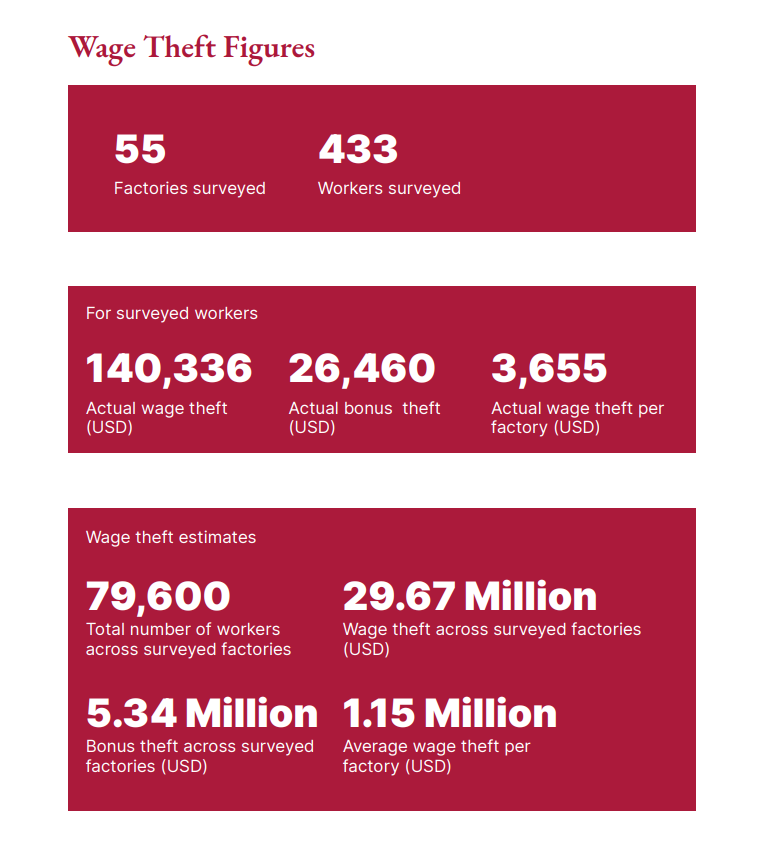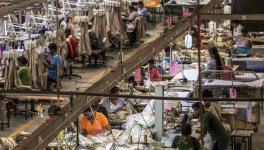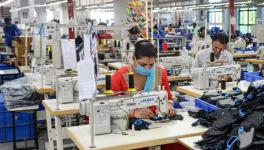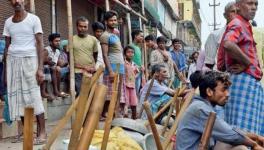Global Fashion Brands Caused Humanitarian Crisis in 6 Asian Countries During Pandemic, Says Report
Garment workers lost a significant amount of wage during the pandemic in six Asian countries including India. Workers’ wages were at poverty levels even before the pandemic, and were pushed further below the International Poverty Line in their countries by the pandemic, according to a recent report titled Money Heist: Covid-19 Wage Theft in Garment Global Supply Chains and published by the Asia Floor Wage Alliance (AFWA).
As many as 2,185 garment workers employed across 189 supplier factories located in six countries -- Sri Lanka, Pakistan, India, Indonesia, Cambodia, and Bangladesh -- took part in the survey for the report. Fifteen global fashion brands, including Walmart, Nike, Adidas, GAP, Marks & Spencer, Levi’s, and American Eagle Outfitters source their garments from these 189 factories. The report studies the impact of the Covid-19 pandemic-induced recession on Asian garment workers employed in the supply chains of major global apparel brands. It highlights wage theft as the most common experience and pre-dominant consequence of the pandemic-induced recession on garment workers, which resulted in a devastating and prolonged humanitarian crisis.
The report said, “Wage theft was not an unintended result of the pandemic crisis, but is in fact an inbuilt mechanism in global garment supply chains through which global apparel brands amass super profits through extreme labour exploitation of workers in their supplier factories. Wage theft is intrinsic to the business models of global apparel brands, who transfer the risks and costs of manufacturing for volatile consumer markets to their suppliers, and ultimately workers in their supply chains, in the form of wage theft. This was exacerbated during the pandemic-induced recession.”
The report was launched during an online event on Wednesday, July 7 in which seven trade union leaders from Asia and international academics discussed the report’s findings detailing the humanitarian crisis brought on by global fashion brands. All the trade union leaders agreed that in recent times, especially during the pandemic, there have been attempts to quash any and all efforts made by workers to form unions or join existing ones. In several countries, workers were threatened with termination. In Bangladesh, workers who tried to unionise and start movements had false cases filed against them.
Speaking at the launch event, Ratna Satpari, Assistant professor at Leiden University in the Netherlands, said, “The report captures different layers of power relations within these companies. The three actors that workers have to deal with and strategise individually and collectively - the corporate, state governance and power regimes - have been captured in the report. This is a highly important contribution to understanding social and economic differentiation and its impact on workers' politics.”
She added, “The report shows the different backgrounds of the workers - for instance, in India, 63% are migrants while in Cambodia 67% are migrants. Pakistan has 74% non-migrants. The report shows how the different positions of workers such as migrants and non-migrants affect their inclusion or exclusion and solidarity among workers, and how the company takes advantage of these differences among workers.”
DEBT AND WAGE THEFT
According to the report, 89% of the workers experienced employment shocks at some point during 2020, either in the form of layoffs or terminations. Workers reported an overall wage theft of 23% in 2020, with a sharp decline in wages by 73% during the Covid-19 lockdown period.
During the Covid-19 lockdown in April and May, 2020, total consumption reduced by 16%, with debt financing 81% of the total household consumption. The average size of debt for garment workers increased more than two-fold in 2020, from 152 USD in the pre-pandemic period to 360 USD by December, 2020. Around 93% of the workers were pushed below the international poverty line of the World Bank (measured at 3.2 USD PPP) in April and May, 2020.
Of the 29.67 million dollars’ worth of wages that workers lost, 5.3 million dollars was lost in the form of festive bonuses, which is an integral income supplement to workers who are paid poverty-level wages.
PANDEMIC IMPACT ON INDIAN GARMENT WORKERS
The report highlighted that the arbitrary lockdown imposed by the Government of India in March 2020 that completely halted production activities overnight emerged as one of the key drivers of distress faced by millions of garment workers in India. The lockdown-induced distress became a humanitarian crisis due to the large-scale order cancellations and retroactive price reductions by brands for goods that were already in production or completed and ready to be shipped.
Speaking at the launch event, Rukmini, President of Garment Labour Union, India, said, “After the lockdown, throughout 2020, garment factories refused to reopen creches in factories or help women workers find alternative child care options. Not providing a creche is a violation of the Maternity Benefits Act of India – brand and suppliers, jointly violated these fundamental rights of women workers in India.” She added, “And now, after the second wave of Covid-19, not only did many factories, especially in Tamil Nadu refuse to pay lockdown wages, they are charging workers for Covid-19 vaccine shots. We have heard from many women workers that they feel suicidal as they seek to escape from the financial crisis inflicted on them.”
“During the Covid-19 crisis, Indian suppliers suffered multiple issues like order cancellations by brands, weak demand in the domestic market (due to fall in disposable income and consumer confidence), reduction in operating surpluses and inadequate support from the government. India’s suppliers passed the cost of these issues onto workers by engaging in widespread layoffs and terminations, with most workers not receiving layoff compensation and termination benefits,” the report said.
It added, “As we write this report, negotiations are going on with regard to payment of wages for garment workers during the Covid-19 2021 lockdowns in different states. While preliminary reports indicate that suppliers in Bengaluru are willing to pay partial wages for the lockdown period, most suppliers in other parts of India have refused to pay any wages for the lockdown period. This is likely to push workers into deeper poverty, which could have intergenerational effects in the long run.”
Get the latest reports & analysis with people's perspective on Protests, movements & deep analytical videos, discussions of the current affairs in your Telegram app. Subscribe to NewsClick's Telegram channel & get Real-Time updates on stories, as they get published on our website.

























